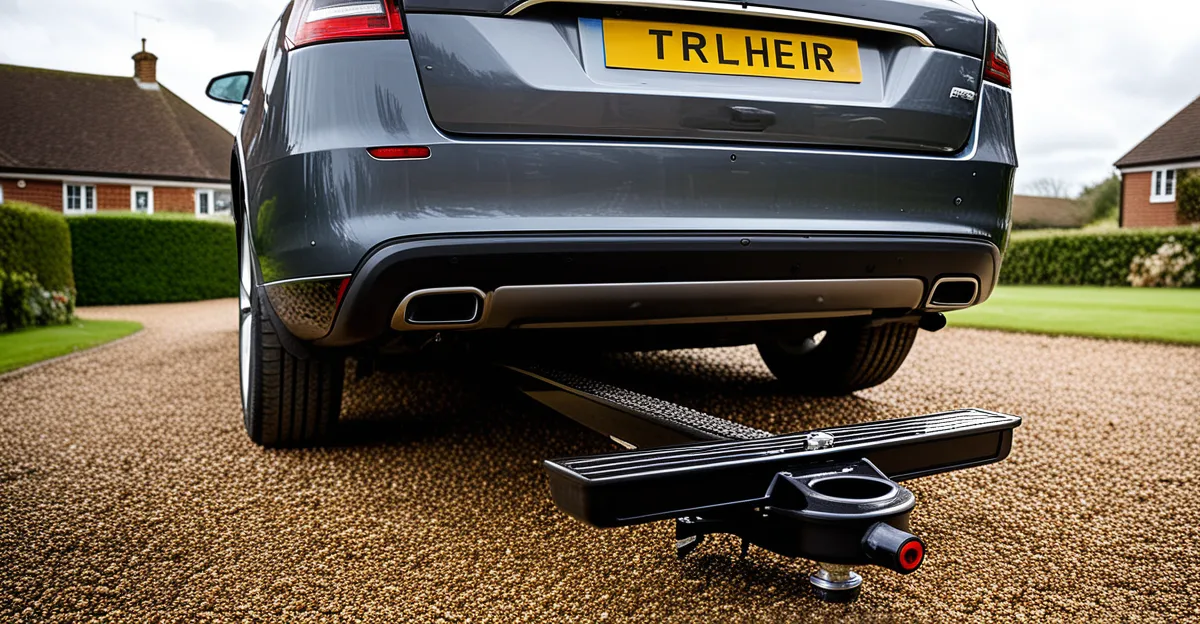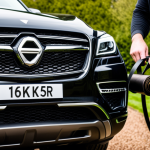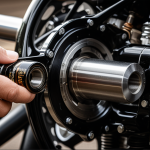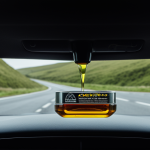Essential Preparations Before Installing a Trailer Hitch
Before starting any trailer hitch installation on your British estate car, understanding hitch compatibility is crucial. Not all trailer hitches fit every model; ensuring the hitch matches your car’s make and towing capacity will save time and prevent safety issues. Estate cars differ in frame design and weight-bearing capabilities, so selecting a hitch specifically compatible with your vehicle type is essential.
Next, familiarize yourself with UK trailer laws. These regulations cover trailer weight limits, lighting requirements, and secure connections for safe estate car towing. For example, knowing the maximum allowable trailer mass that your car can tow legally helps avoid penalties. Additionally, checking requirements for trailer brakes or indicators ensures compliance and road safety.
In parallel : Ultimate Guide to Professional Serpentine Belt Replacement for Luxury SUVs in the UK
Equipping your workspace properly is another key step. Gather all necessary tools—wrenches, torque tools, and safety gear—and prepare a stable, flat surface. Clear space around your car for unhindered access to rear components where the hitch will be mounted. These preparations streamline the installation process, reduce risks, and help achieve a professional finish.
Step-by-Step Trailer Hitch Installation Guide
Installing a trailer hitch on your estate car involves precise, methodical steps to ensure safety and durability. Begin by lifting and securing your estate car using quality ramps or jack stands. This stable setup gives you safe access to the undercarriage for hitch installation.
This might interest you : Unlocking the Secrets of Active Noise Cancellation in Your British Luxury Sedan: The Definitive Guide to Achieving Perfect Settings
Next, remove any rear components like the bumper or exhaust shields that block access to attachment points. This prepares your vehicle’s frame to accept the new hitch. Pay close attention to cleaning and inspecting bolt holes, ensuring they are free from rust or debris.
When mounting the hitch, align it exactly with the factory mounting points specific to your estate car model. Correct alignment is crucial for balanced towing performance. Secure the hitch using bolts that meet OEM torque specifications—tightening to the correct torque prevents loosening during travel and maintains compliance with estate car modifications standards.
Following this DIY trailer hitch step-by-step procedure minimizes installation errors and enhances towing safety. Properly executing each phase—from lifting to securing bolts—means your trailer hitch installation will reliably support estate car towing demands and pass safety inspections.
Wiring and Electrical Considerations for Towing
Proper trailer wiring UK is vital for safe and legal estate car towing. To correctly connect trailer wiring, start by locating the estate car’s predefined electrical wiring harness, usually near the rear light cluster. Using vehicle-specific wiring diagrams ensures you match sockets and pins precisely, preventing faults.
Testing trailer lights and indicators is essential to comply with UK trailer laws. Connect the trailer and verify that brake lights, indicators, tail lights, and fog lights function as required by law. A multimeter or simple test lamp aids in confirming all circuits are live and no breaks exist.
Waterproofing connections prevents corrosion and shorts. Apply silicone grease to plugs and use shrink tubing or waterproof connectors. This step reduces maintenance and improves reliability during estate car towing, especially in rainy UK conditions.
Common faults include loose grounds, wrong pin connections, and blown fuses. Double-check earth wires attached to the vehicle’s chassis and inspect fuse boxes for trailer circuits. Adhering to this detailed estate car towing electrics guide ensures a reliable, compliant trailer light connection, enhancing overall towing safety.
Final Safety Checks and Road-Readiness
Before heading out, performing thorough towing safety checks UK is essential. Start by inspecting the trailer hitch mount for any signs of loosening, corrosion, or damage. Ensure all fasteners meet recommended torque specifications and are secure; this prevents hitch failure during estate car towing.
Next, verify your estate car’s towing weight limits. Exceeding legal thresholds compromises safety and can lead to fines. Consult your vehicle handbook or the official plate near the driver’s door for maximum towing capacity ratings, including the maximum trailer mass and nose weight. Adjust your load accordingly.
Review all safety gear such as towing mirrors, safety chains, and trailer brakes if required by UK trailer laws. Confirm that the trailer’s electrical connections function properly, especially brake lights and indicators, to remain road-legal.
Also, carry essential documents including your vehicle’s V5C registration, insurance details covering towing, and any relevant permits. Missing paperwork can lead to penalties.
Conducting these final checks ensures your estate car towing setup is safe, legal, and ready for the road. This careful preparation reduces risks, helps you avoid roadside issues, and instills confidence in your towing experience.
Troubleshooting and Maintenance After Installation
Proper trailer hitch troubleshooting begins with identifying common issues such as loose bolts, rust, or unusual noises during estate car towing. Regularly inspect the hitch mount and fasteners for corrosion or wear—these problems can compromise safety and towing performance. Tightening bolts to the correct torque specification restores secure attachment and prevents loosening over time.
Maintenance routines should include cleaning connection points and applying anti-rust spray, especially in the damp UK climate. Check the hitch receiver and ball mount for damage or deformation, which may require component replacement to maintain towing reliability. Lubricate moving parts to ensure smooth operation.
If you notice persistent issues like rattling or alignment problems despite routine checks, it is prudent to consult a professional experienced in hitch care UK. Professionals can assess whether estate car modifications are needed or if an upgrade to a heavier-duty hitch is beneficial for your towing demands.
Performing these trailer hitch troubleshooting steps and maintenance safeguards your setup’s longevity. Staying vigilant with care routines reduces breakdown risk and enhances estate car towing safety, providing peace of mind on every journey.







